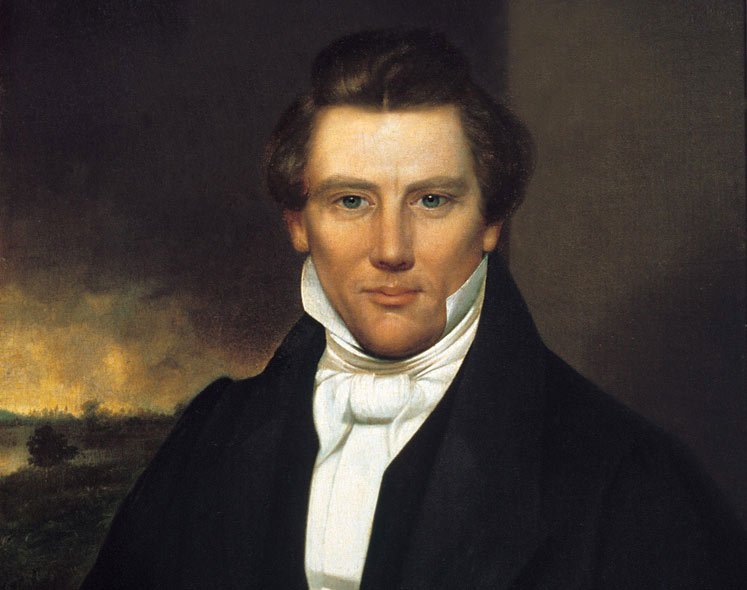As the official version of the story goes, in 1820, 14-year-old Joseph Smith went into the woods near his home in rural New York to pray. There, God the Father and Jesus Christ appeared to him.
Caught up in the Protestant revivalism of his day, Smith inquired as to which of the Christian denominations he should join. None of them, he was told, because they were all wrong. “The Personage who addressed me said that all their creeds were an abomination in his sight,” Smith later recalled.
Smith was urged to take heart. God would use him to reinstate the true church, which had fallen into complete apostasy after the death of the apostles.
The Church of Jesus Christ of Latter-day Saints (LDS) professes to be the restored true church. Its leaders claim that Joseph Smith faithfully rediscovered proper church organization – that is, the Aaronic and Melchizedek priesthoods – and the true gospel, which was lost due to “designing priests” that removed its “plain and precious” truths.
In short, the LDS Church declares itself the one true church, while all other forms of Christianity remain apostate.
Total apostasy?
Our Mormon friends say the great apostasy is prophesied in Scripture. For example, Acts 20:30-31 says, “And men from among yourselves will rise up with deviant doctrines to lure the disciples into following them. Therefore be on the alert …”
So it’s fair to ask: Does the Bible really predict total apostasy? And, if so, is the Mormon Church the only form of Christianity to be trusted?
To the first question, the answer is an emphatic no. Paul’s plea to the Ephesian elders in Acts 20 is to be on guard against false teachers, whom he calls “savage wolves,” but the apostle does not predict a total apostasy of that local church, or the universal body of Christ.
In Gal. 1:6-8, another passage Mormons cite, Paul simply warns against believing a different gospel. There is no hint of total apostasy in Galatia or throughout the world.
And in 2 Thess. 2:3, another favorite Mormon passage, Paul is not referring to a general global apostasy beginning in the first century but rather to a specific apostasy that is yet to come.
As to the second question – Is the LDS Church the only form of Christianity to be trusted? – the answer again is no. The Bible does not feature a restored church because the true church will never be extinguished.
In Matt. 28:20 Jesus promises to be with His followers to the end of the age. His sustaining power will be with us, uninterrupted, until He returns.
In Eph. 3:21 Paul writes, “To Him [Jesus] be glory in the church and in Christ Jesus to all generations, forever and ever.” How could God be glorified in the church throughout all generations if the entire church fell into apostasy?
Further, the Mormon claim of restoring the Melchizedek priesthood cannot be true because that priesthood belongs only to Christ. Psalm 110 is a messianic psalm pointing to the person and work of Christ, not a role in the church. In Heb. 7:23-24 Christ’s priesthood is eternal because He is an eternal being.
In a similar manner, the Aaronic priesthood was done away with and replaced with something better – the priesthood of Jesus Christ, our eternal priest. And we should note that Mormons are not physical descendants of Aaron, a key requirement for the Aaronic priesthood (see Num. 3:6-10).
Just another denomination?
Today the LDS Church downplays its founder’s claim to be the only true church. On its website and in its publications, the church seems to promote itself as another Christian denomination.
Which begs the question for our Mormon friends: Is the LDS Church restored Christianity and therefore the only true church?
If they answer no, then we should ask why Joseph Smith claimed the church he founded is the only true church.
If they answer yes, then we may ask, “Is it possible for a non-Mormon to be a Christian?”
Our Mormon friends cannot have it both ways: Either the LDS Church is the only true church, a claim that Mormons should state clearly and unapologetically. Or the LDS Church is not the only true church, in which case it is reasonable to conclude that Mormonism is not necessary.

